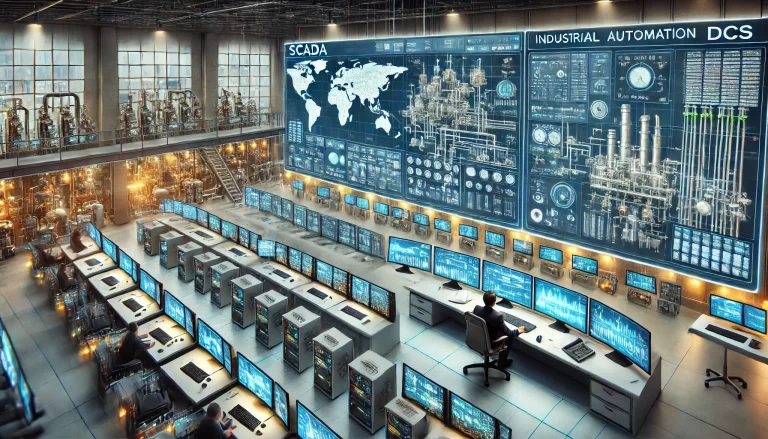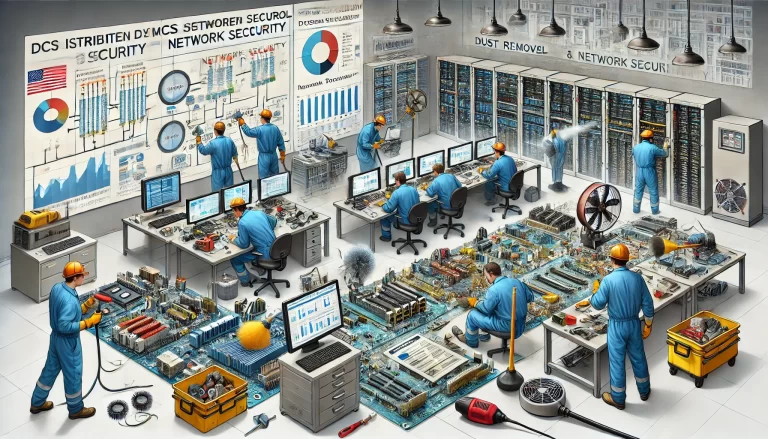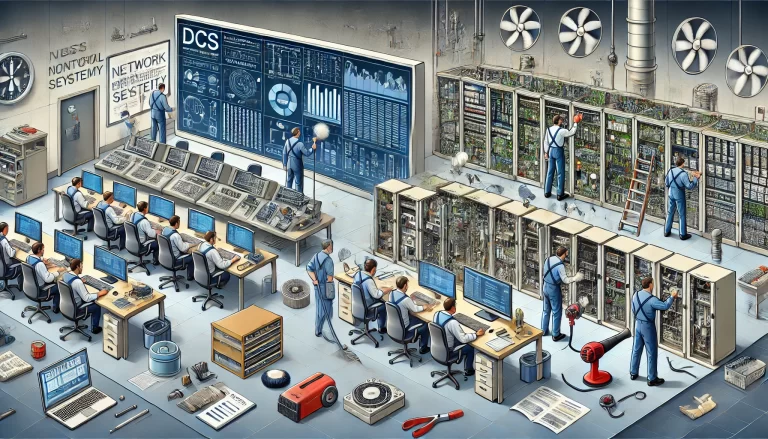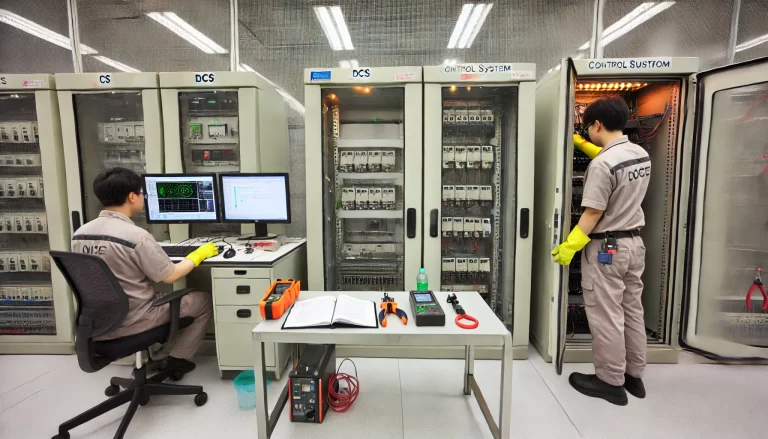Distributed Control Systems (DCS) are widely used in industrial automation, especially in sectors like chemical, power, oil, and gas industries. DCS systems are crucial for ensuring safe, efficient, and stable operation of complex industrial processes. Below is a ranking of some of the most popular DCS systems, along with their strengths and weaknesses.
1. Honeywell Experion PKS
Strengths:
- High Reliability: Experion PKS is designed for mission-critical applications, ensuring stable and dependable operations, particularly in industries where system downtime is costly.
- Seamless Integration: It integrates effortlessly with other Honeywell products, allowing for an optimized and unified control system across various operations.
- User-Friendly Interface: The intuitive and easy-to-navigate interface simplifies operator training and day-to-day operations, enhancing system usability.
- Advanced Security: Honeywell provides robust cybersecurity features, essential for safeguarding critical industrial operations from cyber threats.
Weaknesses:
- High Initial Cost: The initial setup and implementation costs can be high, making it a significant investment for many companies.
- Complex System: Due to its advanced features, it requires specialized training for operators and maintenance personnel to ensure optimal performance.

2. Emerson DeltaV
Strengths:
- Flexibility and Scalability: DeltaV offers modular architecture, making it easy to expand or upgrade the system as your plant’s needs evolve. This is ideal for both small and large-scale industrial setups.
- Ease of Use: The system features a graphical user interface that simplifies configuration and operations, even for complex tasks.
- Comprehensive Integration: It integrates well with Emerson’s wide range of intelligent devices and control solutions, ensuring smooth communication between different components.
- Industry Versatility: Suitable for a wide variety of industries, DeltaV excels in applications like batch processing and continuous control.
Weaknesses:
- Expensive Setup: Like other high-end DCS, DeltaV involves significant upfront investment in hardware and software.
- Learning Curve: While the system is user-friendly, the more advanced features and configurations require dedicated training and experience.
3. Siemens PCS 7
Strengths:
- High Integration: PCS 7 offers seamless integration with Siemens’ broader automation solutions, creating a cohesive environment for all system components.
- Scalable for Various Applications: It’s highly scalable, making it an ideal choice for both small-scale applications and large, complex industrial systems.
- Advanced Functionality: PCS 7 supports complex control strategies, including advanced process control, and is highly adaptable to varied production processes.
- Global Support Network: Siemens provides worldwide support and service, making it a reliable choice for multinational companies with operations in multiple regions.
Weaknesses:
- Complex Configuration: The system’s extensive capabilities can be overwhelming, requiring specialized knowledge for installation, configuration, and troubleshooting.
- High Maintenance Costs: Due to the system’s complexity, ongoing maintenance and updates can be costly.

4. Yokogawa CENTUM VP
Strengths:
- Robust Reliability: Yokogawa is known for delivering high-quality, reliable solutions, making CENTUM VP ideal for critical applications where system failure is not an option.
- Intuitive User Interface: The system’s user-friendly design reduces operational errors and enhances the ease of system management.
- Seamless Integration: It integrates effortlessly with Yokogawa’s suite of control devices and monitoring solutions.
- Cybersecurity: CENTUM VP is equipped with advanced security features to protect industrial operations from potential cyber threats.
Weaknesses:
- High Cost: As with other high-end DCS systems, the cost of ownership, including installation and ongoing maintenance, can be prohibitive for some companies.
- Complex Setup: The advanced functionalities require specialized knowledge, making training and expert handling essential for successful implementation.
5. ABB Ability System 800xA
Strengths:
- Integrated Automation: The 800xA system offers an integrated approach to automation, bringing together control, safety, and monitoring in a single platform for increased operational efficiency.
- Scalability: ABB 800xA is highly scalable, supporting both small and large-scale applications.
- Advanced Features: The system supports a wide range of advanced control strategies and can handle sophisticated control loops with ease.
- Global Support: ABB offers extensive global service and support, ensuring that customers can receive help wherever their operations are located.
Weaknesses:
- Steep Learning Curve: While the system’s capabilities are extensive, they also make it complex. Operators and maintenance staff require significant training to operate and manage the system effectively.
- High Investment: The cost of implementing and maintaining ABB 800xA can be quite high, making it a significant financial commitment for organizations.

6. Schneider Electric EcoStruxure
Strengths:
- Modular and Flexible: EcoStruxure offers modular design, allowing businesses to customize the system as per their specific needs and expand it as required.
- User-Friendly Interface: The intuitive interface makes it easy for operators to configure and control various processes, even without extensive technical training.
- Comprehensive Integration: Seamlessly integrates with Schneider Electric’s broad range of industrial automation and control solutions.
- Industry Adaptability: Suitable for a wide range of industries, from manufacturing to utilities, and easily adaptable to various applications.
Weaknesses:
- High Initial Costs: The system can be expensive to deploy, particularly for smaller companies with budget constraints.
- Learning Curve: Advanced features require a learning period, especially for operators who need to leverage the full capabilities of the system.
7. Rockwell Automation PlantPAx
Strengths:
- Comprehensive Integration: PlantPAx integrates well with Rockwell Automation’s suite of automation solutions, providing an all-in-one system for control, safety, and data management.
- Scalability: Ideal for a wide range of applications, from small plants to large industrial facilities.
- Advanced Process Control: The system is designed to handle complex control strategies and provides real-time data for improved decision-making.
- Global Service and Support: With a robust service and support network, Rockwell Automation ensures that customers receive assistance whenever needed.
Weaknesses:
- Complex Configuration: The system’s versatility and range of capabilities come with a complex configuration process, requiring skilled professionals for setup and maintenance.
- Costly Implementation: The initial cost of PlantPAx and its associated services can be a significant investment for many companies.

8. Foxboro Evo
Strengths:
- High Reliability: Known for its durability and reliability, Foxboro Evo is suitable for industries where operational uptime is critical.
- Ease of Use: The user interface is designed to be straightforward, reducing the risk of errors and simplifying day-to-day operations.
- Seamless Integration: It integrates well with other Foxboro systems and provides a unified solution for process control.
- Strong Security: Advanced cybersecurity measures are built into the system to protect against cyber threats.
Weaknesses:
- High Cost of Ownership: As with other high-end DCS, the cost of deployment and ongoing maintenance can be quite high.
- Complex Training Requirements: Due to its advanced features, the system requires specialized training to ensure that operators can use it effectively.
9. GE Digital Proficy
Strengths:
- Comprehensive Integration: Proficy integrates seamlessly with GE’s industrial automation products, creating an efficient and cohesive control environment.
- Scalability: It is suitable for both small-scale and large-scale industrial applications.
- Advanced Functionalities: The system supports complex control strategies, making it suitable for industries with high-demand control processes.
- Global Technical Support: GE offers a comprehensive global service network, ensuring support for operations across different regions.
Weaknesses:
- Complex Configuration and Maintenance: Due to its advanced capabilities, the system requires skilled personnel for setup, maintenance, and troubleshooting.
- Cost of Implementation: The initial cost and maintenance of Proficy are on the higher side, which could be a barrier for smaller organizations.
10. Invensys (now Schneider Electric) Foxboro I/A Series
Strengths:
- High Reliability: Known for its stability and dependability, Foxboro I/A Series is ideal for industries that require consistent performance under demanding conditions.
- User-Friendly Design: Its intuitive interface makes it easy to operate and manage, even for personnel with minimal training.
- Seamless Integration: Integrates well with other Schneider Electric automation solutions, providing a comprehensive system for process management.
- Cybersecurity: Includes robust cybersecurity features to ensure safe and secure operations.
Weaknesses:
- High Initial Investment: Similar to other advanced DCS solutions, the cost of implementation and ongoing maintenance can be significant.
- Complex System: The system’s full potential requires specialized training for effective use and management.

Conclusion
Each DCS system has its own set of advantages and drawbacks, and selecting the right one depends on the specific needs of your organization. Systems like Honeywell Experion PKS and Emerson DeltaV excel in reliability and integration, while Siemens PCS 7 and ABB Ability System 800xA stand out for their powerful functionality and global support networks. Consider factors such as budget, industry requirements, and system complexity when choosing the right DCS for your operation.
